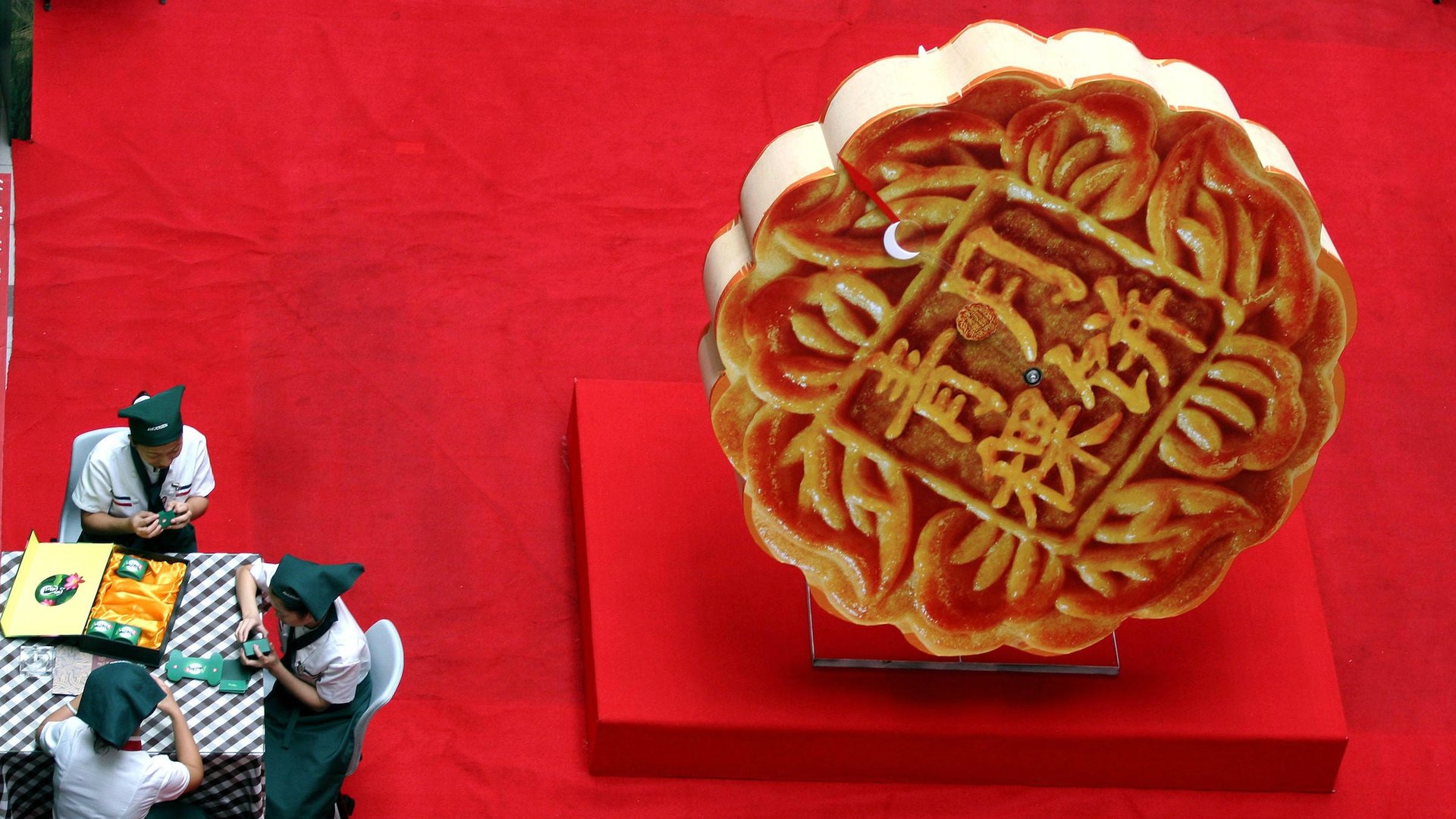Who needs mooncakes? Tea and herbal tonics are the bribes of choice during China’s mid-Autumn festival
In the face of a government crackdown on mooncakes, holiday goers in China are finding ways to keep the “gifting” spirit of the country’s Mid-Autumn festival alive. A traditional present that often serves as a kind of bribe, mooncakes are being replaced with less conspicuous items like tea, tonics, herbs and gift cards.


In the face of a government crackdown on mooncakes, holiday goers in China are finding ways to keep the “gifting” spirit of the country’s Mid-Autumn festival alive. A traditional present that often serves as a kind of bribe, mooncakes are being replaced with less conspicuous items like tea, tonics, herbs and gift cards.
Mooncakes are disc-shaped pastries roughly the size of the palm of one’s hand. Made from red bean or lotus seed paste with salted egg yolk or duck eggs, the cakes are exchanged between friends, family and business associates throughout the ancient harvest festival in tribute to the moon. Although few people actually eat the pastries today (they can contain as many as 1,000 calories each) they are used to curry favor. In the 1980s the pastry cost as little as 1 renminbi, or less than $0.15, but now it is gifted in lavish box sets that often include “accessories” like cigarettes, liquor or even envelopes of cash. A luxury gift box can cost hundreds of dollars because of its ornate packaging. Last year, mooncakes packaged in gold and silver gift boxes sold out during the festival.
This year the government has banned officials from using public money to buy the pastry after barring last year’s mooncake sellers from including extra gifts in mooncake boxes. State media and officials are extolling the move as another step in Xi Jinping’s broader anti-corruption crackdown.
But the new law hasn’t stopped other types of “gifting” by business executives and government officials during this year’s festival. Sets of tea ranging from 200 to 2,000 renminbi ($33 to $330) are selling quickly ahead of the holiday, which begins Sept 19, according to a media report’s survey (in Chinese) of stores in Chengdu, China. One tea sales staffer said tea prices had risen by a third. Ginseng tonic, gelatin created from the spit in bird’s nests, and gift cards were also selling more than in years past.
The substitution of tea, tonics and herbs for mooncakes reflects the persistence of gift-giving in China despite government threats. But it may also reflect a shift in values: These smaller gifts, often cheaper than boxes of luxury mooncakes, prove that bribes in China don’t have to be big and pricey.
Recently, internet users were surprised by how cheaply government officials could be bribed by a real estate developer in Yinchuan in central China. According to a list that circulated the internet in July, “gifts” donated to 47 different officials cost between 1,000 renminbi to 3,000 renminbi ($163 to $326). “Such cheapskates. Only 2,000 renminbi to the secretary of the mayor?” one blogger commented, according to Tea Leaf Nation. Another blogger said in response, “The numbers are about right. The amounts we usually give are even lower, and basically they get the job done. The internet rumors are overblown. It’s very rare to give a few million, unless there is something really important to be done.”